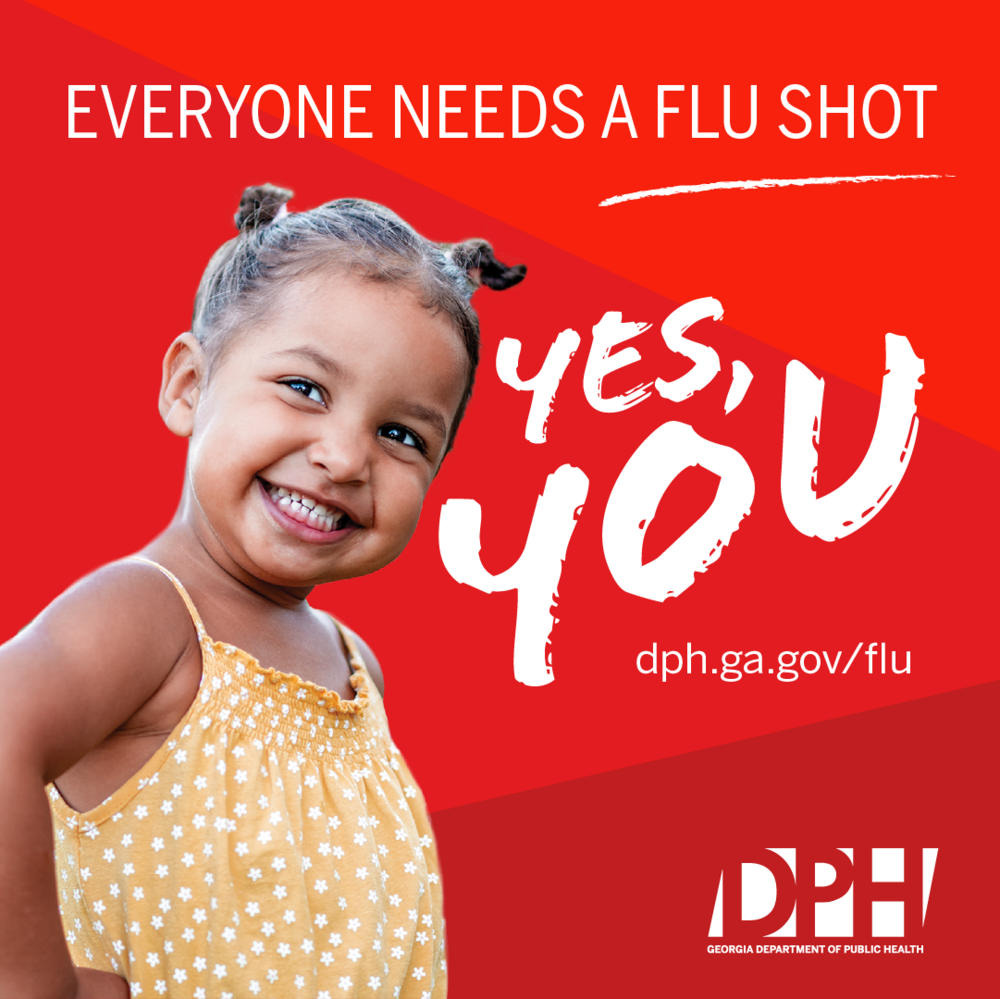-
Preventing Flu
The flu season in Georgia begins in early October and can run as late in the year as May. With such a long window of opportunity for contracting the influenza virus, the flu is regarded as one of the nation’s most common illnesses. In fact, the Centers for Disease Control and Prevention (CDC) estimates 5 to 20 percent of Americans get the flu, and more than 200,000 people are hospitalized each year from flu-related health complications.
Minimizing opportunities of contracting the flu is as easy as securing an annual flu vaccination– a simple message that will be routed through the Department of Public Health’s (DPH) National Influenza Vaccination Week (NIVW) campaign.
Observed this year from Dec. 5-9, the NIVW annual observance highlights the importance of continuing flu vaccinations during the holiday season and beyond. DPH will join the CDC and other national health organizations in educating the public about flu vaccination and proactive measures they can follow to protect their health during flu season.
Georgia, along with the southeast and south-central areas of the country, has identified high levels of influenza activity. Early flu activity indicates that influenza A(H3N2) is the predominant influenza virus that has been characterized by public health laboratories in the nation. Influenza A(H3N2) predominant years are often associated with more hospitalizations and deaths in aged 65 years and older and younger children compared to other age groups. It is impossible to predict the timing and severity of the upcoming influenza season, but with limited activity for the last two seasons and decreased population immunity, we are on high alert and preparing for increased influenza activity. That is why we urge all eligible people to get up to date with their seasonal influenza vaccine.
Influenza: What You Need to Know
Influenza (flu) is a contagious respiratory illness caused by influenza viruses that infect the nose, throat, and lungs. Some people, such as people 65 years and older, young children, and people with certain health conditions, are at higher risk of serious flu complications. There are two main types of influenza (flu) viruses: types A and B. The influenza A and B viruses that routinely spread in people (human influenza viruses) are responsible for seasonal flu epidemics each year.

To learn more about the flu, visit the CDC: https://www.cdc.gov/flu/.
The best way to reduce the risk of flu and its potentially serious complications is by getting vaccinated each year.
To find available vaccines near you, visit https://www.vaccines.gov/find-vaccines/.

Widespread Flu Activity in Georgia
January 5, 2024 Press Release
Contact Information
Georgia Immunization Program
200 Piedmont Ave SE
Atlanta, GA 30334
Phone: (404) 657-3158 or 3159
Fax: (404) 657-1463
email: [email protected]
Page Update 1/8/2024